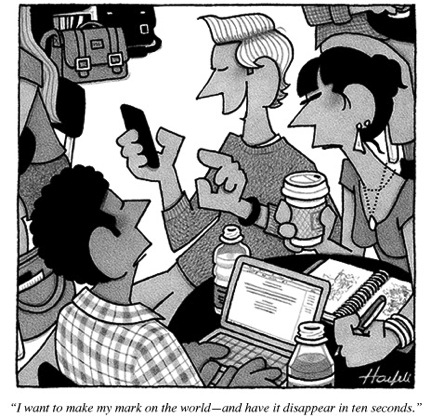Creative Destruction: Myth or M.O.?
David Kirkpatrick
Speaking to a group of students, Austrian economist Joseph Schumpeter once said, “Gentlemen, a depression is for capitalism like a good, cold douche.” He was saying, wake up capitalists! Sustainability is a myth and “creative destruction,” whether you like it or not, is your modus operandi! Schumpeter coined the term to describe a capitalist economic reality: while new products and systems grow, the old ones must die, making room for innovation. This is sensible, but it’s not easy living inside that kind of change. And making it worse, the change is rapid. Moore’s Law pushes us toward faster and smaller computing, and into quantum computing by the end of this decade.
Such rapid-fire creative destruction is bewildering for this boomer. We grew up on the ritualization of stories found in music and photo albums, and between magazine and book covers. There was a tactile, emotional, and meaningful connection to those art forms. Now much of that hard, physical stuff is gone or going. But we are told that with all creative destruction comes the inherent hope that what we gain is significantly more than what we lose. My question is, when most studies indicate we would rather text than talk and other studies suggest many of us no longer like being human, is that really the case?
At the age of seventeen, Mary Shelley rang the harbinger bell on the industrial revolution with her parable "Frankenstein; or, the Modern Prometheus." One hundred and fifty years later Timothy Berners-Lee, inspired by Arthur C. Clarke’s retelling of the Shelley story in "Dial F for Frankenstein," created the “World Wide Web,” a different kind of monster, collapsing the notion of space and time. We are now one world 24/7 and the rapid rise of instant communication, without the awkwardness and drama of true one-on-one human interaction, is stunning. It now seems Schumpeter is correct, and creative destruction applies to all of culture, not just economics. But is this conclusion simplistic? Are church and cultural traditions of any value beyond an irrelevant historical interest? Has history itself been devalued and downgraded to simple entertainment? And didn’t someone say something about grass withering and flowers fading, but...?
